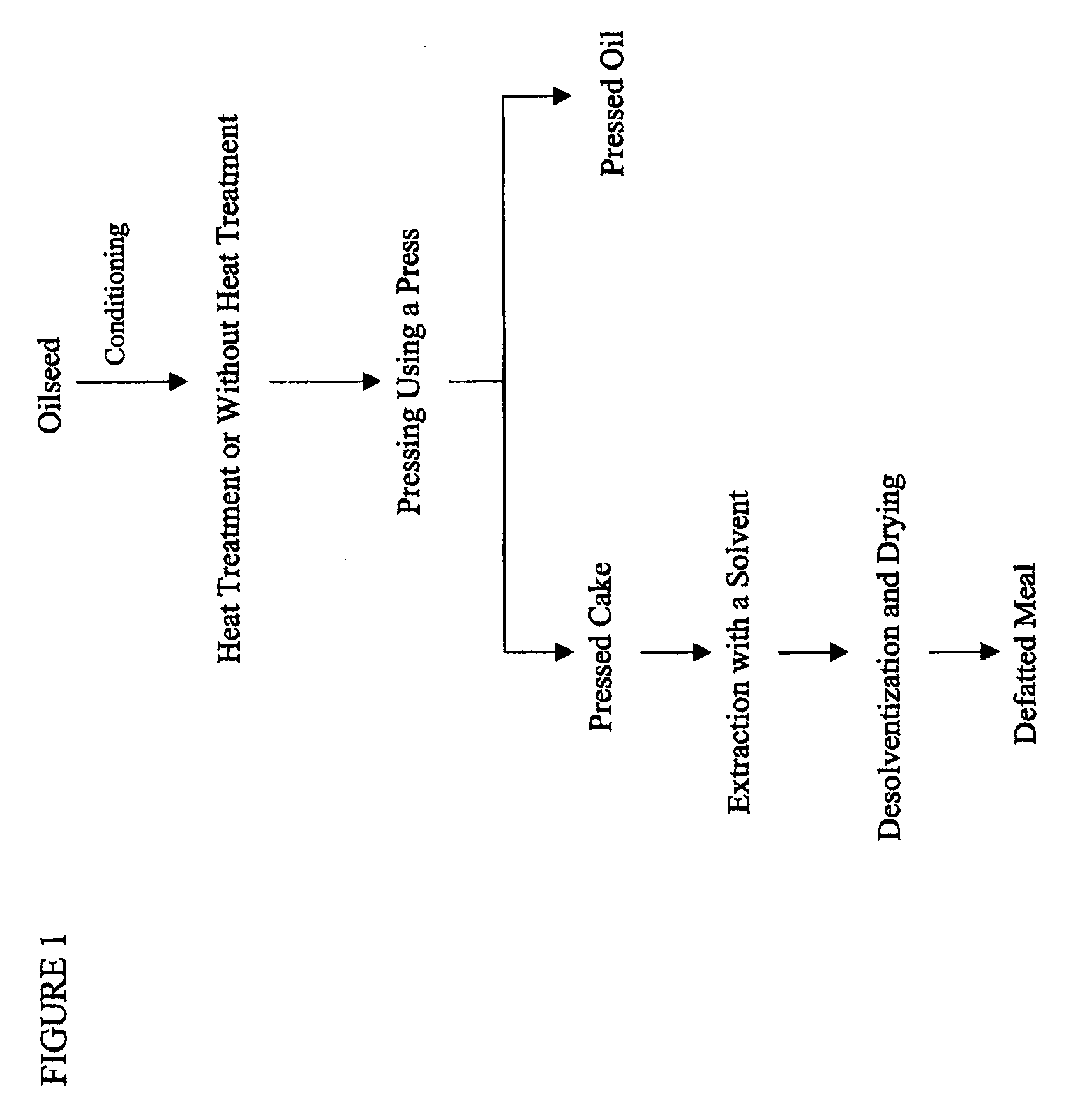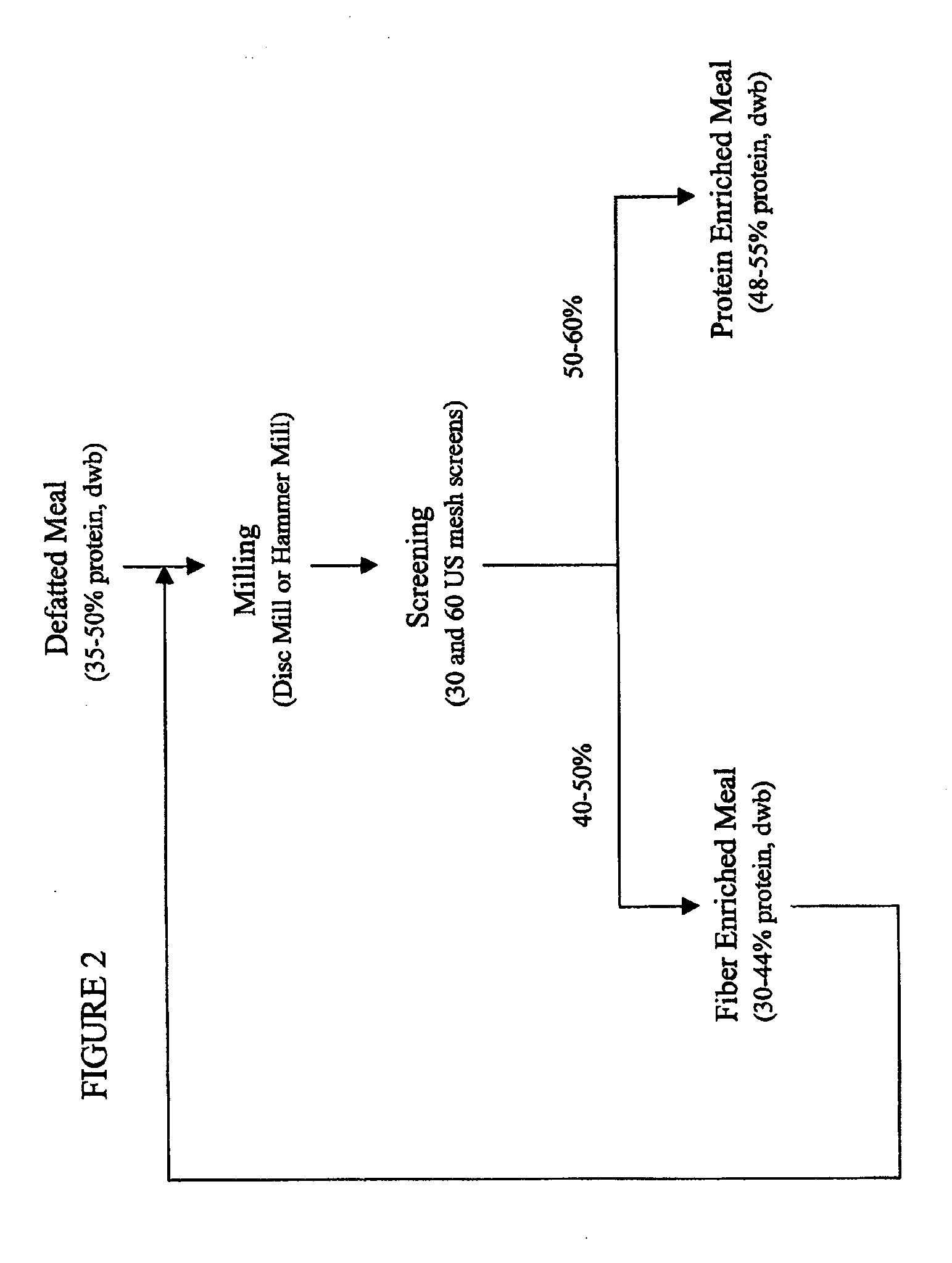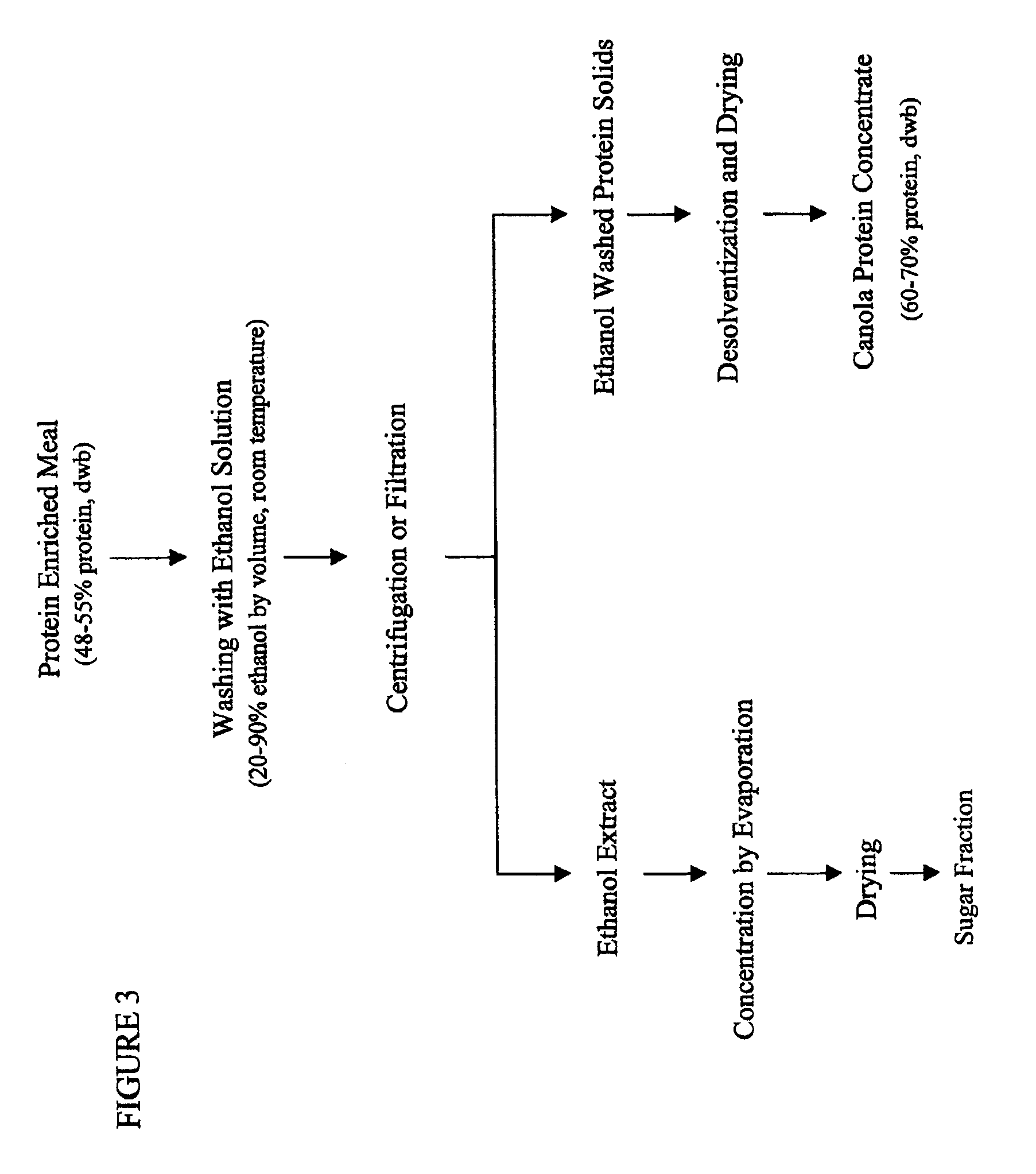Protein concentrates and isolates, and processes for the production thereof
a technology of protein concentrate and isolate, which is applied in the field of protein concentrate and protein isolate, can solve the problems of uneconomical removal of salt, difficult dissolution of canola protein in aqueous solution, and unattractive commercial use of defatted meal, and achieve the effect of high quality
- Summary
- Abstract
- Description
- Claims
- Application Information
AI Technical Summary
Problems solved by technology
Method used
Image
Examples
example 1 (
Example 1(b)
Effect of Heat Treatment on Canola Seed (Brassica juncea) at Temperatures Between 100° C.-130° C.
[0534]Five samples containing about 4 kg (about 20 kg in total) of canola seed were adjusted from an original moisture content of about 6.25% to about 11% by adding water to the canola seed in a plastic pail with manual agitation for a few minutes. The canola seed in the pails was then covered and tempered overnight in the laboratory.
[0535]After the canola seed had been tempered overnight, five samples containing about 4 kg of the tempered seed (about 20 kg in total) were subjected to individual heat treatments with a combination of high temperatures and short residence times using a lab scale as listed in Table 2. After heat treatment, the five samples (about 4 kg each) of the heat treated canola seeds were flaked using a lab flaking mill, and then pressed. The pressed oils were analyzed for sulfur, phosphorus and FFA contents. The pressed cakes were stored in a freezer.
[053...
example 2
Protein Concentrate of about 65% Protein
(a) Defatted Meal
[0549]Approximately 4 kg of canola seed (B. juncea) was adjusted from the original 6.25% moisture to 11% moisture by adding water to canola seed in a plastic pail with manual agitation for a few minutes. The canola seed in the pail was then covered and tempered overnight in the laboratory. The tempered canola seed was then heat treated at 100° C. for 15 seconds.
[0550]After heat treatment, the canola seed was flaked using a lab flaking mill and then pressed. The pressed cake was stored in a freezer before solvent extraction. The pressed oil was recovered and stored in a freezer. The pressed cake was extracted with 6-8 liters of methyl pentane at about 58-67° C. for 5 hours using a lab scale Soxhlet system. The extracted oil was recovered by evaporation and desolventization to remove the solvent from the miscella under vacuum at 60° C. The extracted oil was stored in a freezer. The methyl pentane extracted meal or defatted meal ...
example 3
Protein Concentrate of about 70% Protein
(a) Ethanol Washing and Screening
[0553]The process for preparation of the protein-enriched meal was the same as in Example 2 except for (1) canola seed was cooked at 80° C. for 25 minutes before pressing, and (2) the defatted meal was milled using a disc mill before screening through a 60 US mesh screen as described below.
[0554]Approximately 1 kg of protein-enriched meal was mixed under homogeneous agitation with 6 kg of 80% (v / v) ethanol at 50° C.±5° C. for 1 hour, which was followed by screening the mixture through a 40 mesh US screen to remove fiber. The screened mixture was centrifuged at 4,000 g force using a lab centrifuge for 15 minutes to separate the sugar extract from the protein solids. The protein-solids were mixed under homogeneous agitation with 6 kg of 80% (v / v) ethanol at 50° C.±5° C. for 0.5 hour. The washed protein solids was separated from the sugar extract by centrifugation at 4,000 g force for 0.5 hour. The protein solids ...
PUM
| Property | Measurement | Unit |
|---|---|---|
| temperature | aaaaa | aaaaa |
| molecular weight | aaaaa | aaaaa |
| molecular weight | aaaaa | aaaaa |
Abstract
Description
Claims
Application Information
 Login to View More
Login to View More - R&D
- Intellectual Property
- Life Sciences
- Materials
- Tech Scout
- Unparalleled Data Quality
- Higher Quality Content
- 60% Fewer Hallucinations
Browse by: Latest US Patents, China's latest patents, Technical Efficacy Thesaurus, Application Domain, Technology Topic, Popular Technical Reports.
© 2025 PatSnap. All rights reserved.Legal|Privacy policy|Modern Slavery Act Transparency Statement|Sitemap|About US| Contact US: help@patsnap.com



